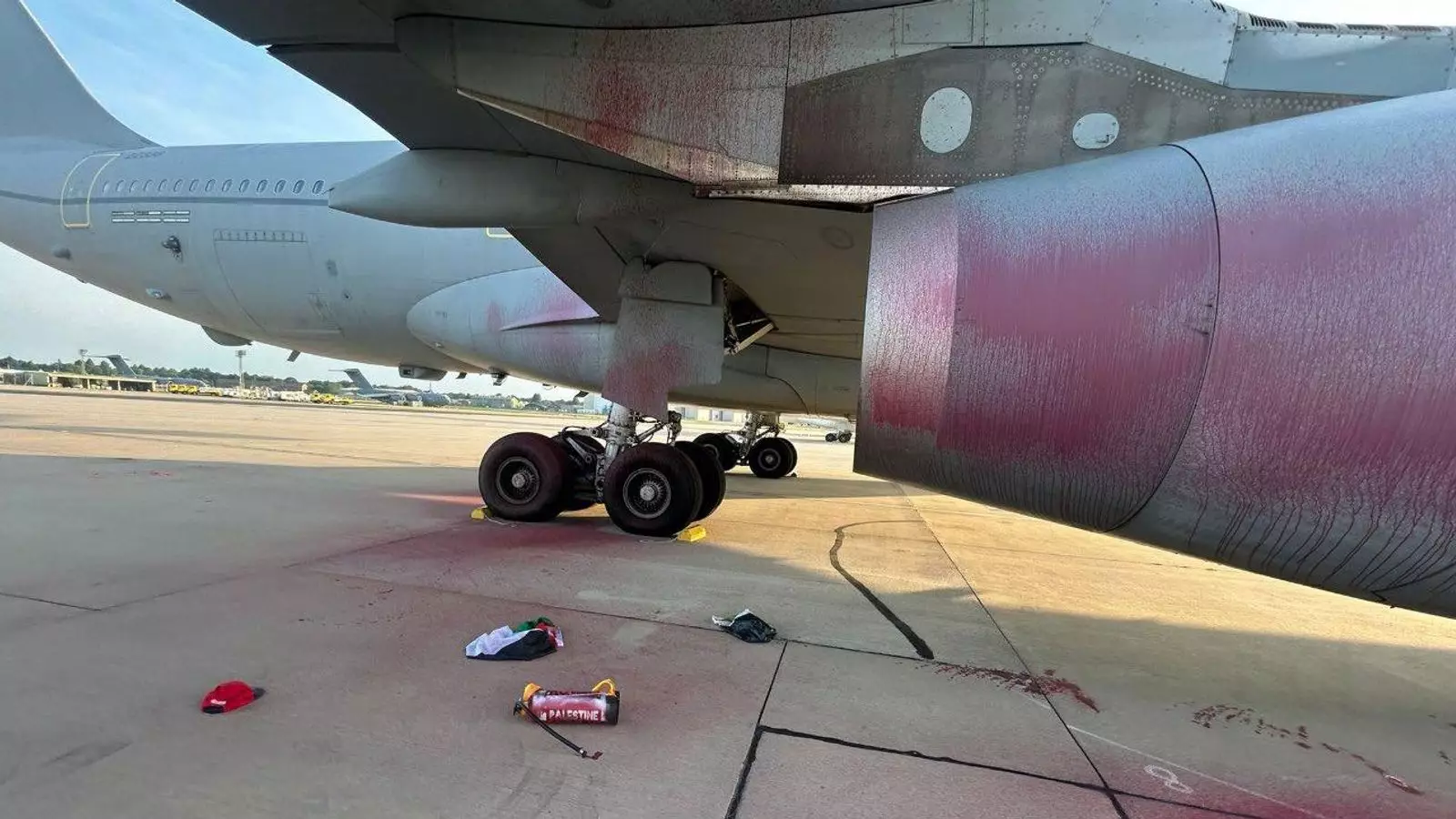The recent declaration by Home Secretary Yvette Cooper to classify Palestine Action as a terrorist organization marks a significant and alarming shift in how dissent is handled in the UK. It is disconcerting to see an activist group, primarily known for its controversial protests against the Israeli-Palestinian conflict, being targeted with such harsh legislative action. Labeling them as terrorists based on their methods, which often involve property damage, not only oversimplifies the complexity of their motives but also runs the risk of criminalizing valid political expressions.
Palestine Action’s recent incursion into RAF Brize Norton, where activists reportedly caused millions of pounds worth of damage, has ignited outrage among government officials. While the act itself raises serious questions regarding legality and safety, to leap from protest to terrorism is a radical oversimplification. These activists perceive their actions as a necessary response to what they consider systemic oppression, not as an attempt to sow chaos or destabilize society. The government’s reaction, therefore, reflects more of an authoritarian impulse than a robust response to security threats.
The Government’s Reaction: A Case of Fear and Control
Much attention has been paid to the phrase “knee-jerk reaction,” as described by Palestine Action member Saeed Taji Farouky. Is this proscription really motivated by a genuine concern for national security, or are deeper currents of fear and political expediency at play? The government’s swift call for a proscription order indicates a desire to regain control over a narrative that has clearly spiraled beyond their expectations. When the actions of a protest group coerce the government’s response into a defensive position, one must wonder about the power dynamics inherent in this situation.
As the so-called security review unfolds, it becomes clear that the government is treating this incident as a failure of their own systems rather than a societal outcry against the state of affairs in the conflict-ridden Middle East. Could it be that the true fear lies not in the activists themselves, but in what they represent—a broader and possibly transformative dissent against established policies that many citizens find morally bankrupt?
A Precedent for Stifling Dissent
The implications of this decision extend far beyond Palestine Action. It sets a perilous precedent: the criminalization of protest based on the means employed rather than the message conveyed. Should the government continue to define terrorism in such broad terms, it invites a chilling atmosphere where various activist groups might find themselves throttled by the law simply for exercising their democratic rights. Peaceful protest, while still being granted a semblance of protection, could quickly become a veneer over an increasingly oppressive environment where only state-sanctioned narratives can flourish.
This political overreach is reminiscent of other historical instances where governments have criminalized dissent under the pretense of maintaining public order. It raises essential questions about the balance between security and the right to protest. Should a government that prides itself on democratic values resort to legally branding dissenters as terrorists? In asserting control, will it risk losing the moral legitimacy that forms the cornerstone of its societal contract?
Compassion for the Protester vs. Public Safety
While many argue that violent acts against property cannot be condoned, it is crucial to grapple with the underlying motivations of such actions. To some, these drastic measures represent the desperate measures of a group fighting against an oppressive backdrop that has largely been ignored. The government’s framing of these acts as “disgraceful” sidesteps the crucial discussion about the injustices that drive individuals to such lengths. It transforms activists into mere criminals rather than acknowledging them as complex actors in a protracted geopolitical struggle.
The assurance from Ms. Cooper that the proscription will not affect the rights of those wishing to protest peacefully is flimsy at best. Once a group is labeled as terrorists, the walls close in quickly, and the environment for peaceful protest becomes increasingly hostile. The act of painting a jet engine with red spray paint becomes more than an act of defiance; it becomes a symbol of a larger struggle, one that is now under threat from an overzealous state apparatus.
In choosing to prosecute ideas rather than foster dialogue, the government risks further alienation and resentment among various groups. The real danger lies not in the actions of protestors, but in a governmental response that closes off avenues for discussing and addressing the grievances that lead to such radical expressions.


Leave a Reply